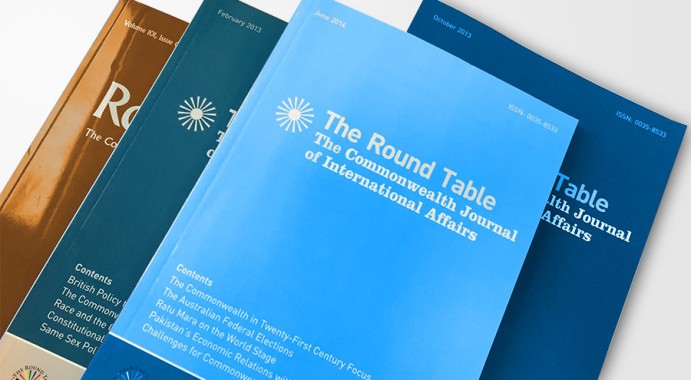
A coordinated wave of suicide bombings in churches and hotels across the island on Easter Sunday killed at least 253 and injured about 500 in an onslaught that shocked a country growing accustomed to peace after a quarter-century of civil war. The official death toll had been put at 359 for several days but then revised down.
The main target were the island’s Christians, who make up less than 10% of the majority Buddhist population. At least 39 foreigners were among those killed in blasts at three luxury hotels in the capital, Colombo. A state of emergency was declared, allowing suspects to be detained without court orders, and social media was blocked.
A little-known Sri Lankan militant Islamist group based in southern India, National Thowheeth Jama’ath (NTJ), has been blamed for the bombings but the government believes local jihadists needed help from an international network for the attacks. Days later, Islamic State claimed responsibility, though it provided no evidence to back the claim (Isis often takes credit for attacks it may have inspired rather than planned and carried out). Ruwan Wijewardene, deputy defence minister, linked the bombings to the shooting of 50 people in New Zealand mosques in March, telling parliament that ‘preliminary investigations have revealed that what happened … was in retaliation for the attack against Muslims in Christchurch.’ Secu
Although it first appeared that the authorities had been unprepared for the onslaught, it quickly emerged that there had been warnings that the island’s Christians were a target for militant Islamists. Reuters reported that a tip-off about a possible attack on churches by NTJ had been received 10 days earlier. The New York Times said even suspects’ names and addresses were given by the foreign intelligence agency that alerted Sri Lanka’s security services. The Guardian said the ‘virulently anti-Buddhist’ NTJ had been ‘linked to the vandalisation of Buddhist statues’. One suicide bomber had been arrested for this a few months ago.
The prime minister, Ranil Wickremesinghe, said neither he nor his ministers were warned about the attack, the NYT reported, linking this communication breakdown to last year’s political standoff between Wickremesinghe and the president, Maithripala Sirisena (see ‘Parliament Dissolved’, Update, Nov 2018).
Three lone suicide bombers attacked three churches: St Sebastian’s in Negombo, a predominantly Roman Catholic town; St Anthony’s, in Colombo’s Kochchikade suburb; and Zion Church in Batticaloa, some 300km east of the capital. Three five-star hotels in Colombo were targeted – the Shangri-La, the Kingsbury and the Cinnamon Grand – as well as the Tropical Inn guesthouse in Dehiwala, Colombo. Another suicide bomber detonated his explosives as he was being questioned by police at the Dematagoda housing complex, killing himself and three officers. A 50kg pipe bomb was also defused at Bandaranaike airport, while police found 87 detonators at Colombo’s main bus station and carried out a controlled explosion on a van near St Anthony’s.
The deadliest blast was at St Sebastian’s, where up to 1,000 people were gathered for the Easter Sunday service, CNN reported; more than 50 people were killed. There were more explosions on the Monday, though no further casualties were reported. A number of suspected accomplices, and members of their families, died in gun battles and explosions in subsequent raids by the security forces on safe houses. The jihadist cell is believed to have been led by Mohammed Zahran Hashim, an extremist preacher who was among those killed.
The bombings end Sri Lanka’s most peaceful decade since the separatist Tamil Tiger rebels began their armed struggle in 1983. But, as analysts such as Prof Neil DeVotta have pointed out, the Sinhalese-dominated government’s victory over the Hindu Tamils in 2009 brought in its wake a dangerous wave of Buddhist triumphalism. According to other academics such as Barana Waidyatilake and Myra Sivaloganathan, Sinhalese nationalism has long fuelled ethnic tension, from the 19th century to the recent Rajapaksa government. ‘Political Buddhism,’ writes DeVotta elsewhere, resorts to ‘antidemocratic and ethnocentric practices’ to assert its supremacy, eroding pluralism and human rights. Amarnath Amarasingam notes that both Tamils and Sinhalese had historically targeted Muslims. Last year a state of emergency was declared in Kandy after Sinhala mobs attacked a mosque and Muslim properties, following an attack on a Buddhist man. One man told the BBC: ’Four mosques, 37 houses, 46 shops and 35 vehicles damaged … Everything is destroyed. Muslims live in fear.’ Reports of reprisals against Muslims following the bombings, such as a petrol bomb attack on a mosque, will only increase fears of a pogrom.
[Oren Gruenbaum is the editor of the Commonwealth Update section of The Round Table: Commonwealth Journal of International Affairs.]



